Understanding prefixes Writing Worksheets for Ages 4-8
6 filtered results
-
From - To
Explore our engaging "Understanding Prefixes Writing Worksheets" designed for children ages 4-8! These worksheets provide a fun and interactive way for young learners to grasp the concept of prefixes, enhancing their vocabulary and writing skills. Each activity guides children in identifying and using common prefixes to form new words, encouraging a deeper understanding of language. Perfect for home or classroom use, these worksheets stimulate creativity and foster a love for learning. Watch as your child gains confidence in their writing abilities while mastering the building blocks of language! Download now and inspire a lifelong passion for words!
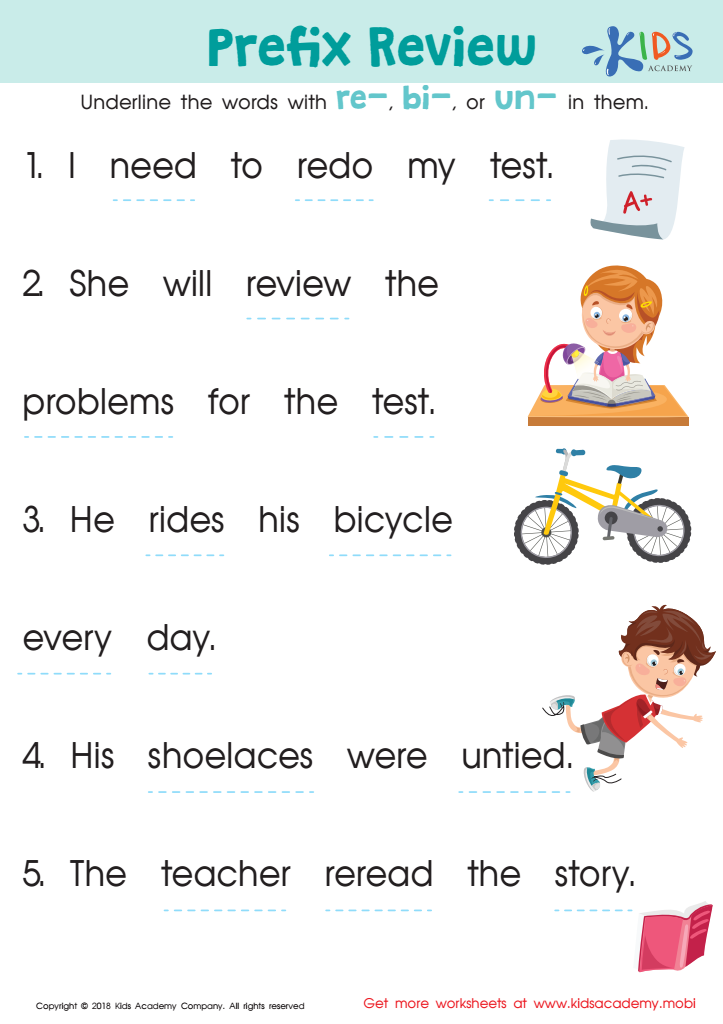

Prefix Review Worksheet
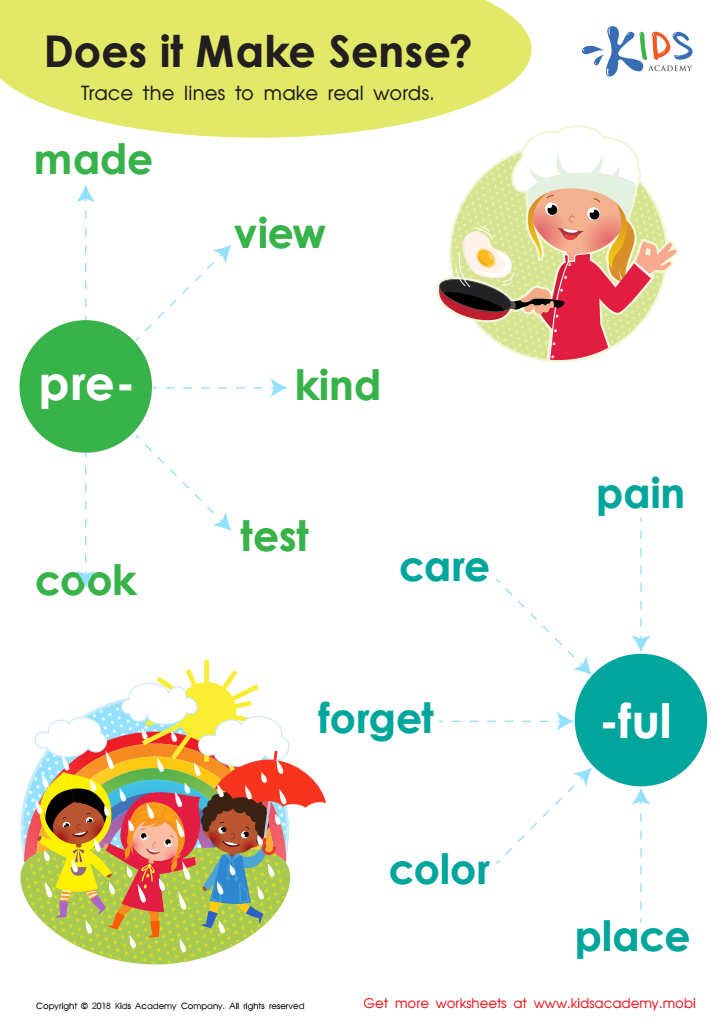

Prefix pre– and Suffix ful– Worksheet
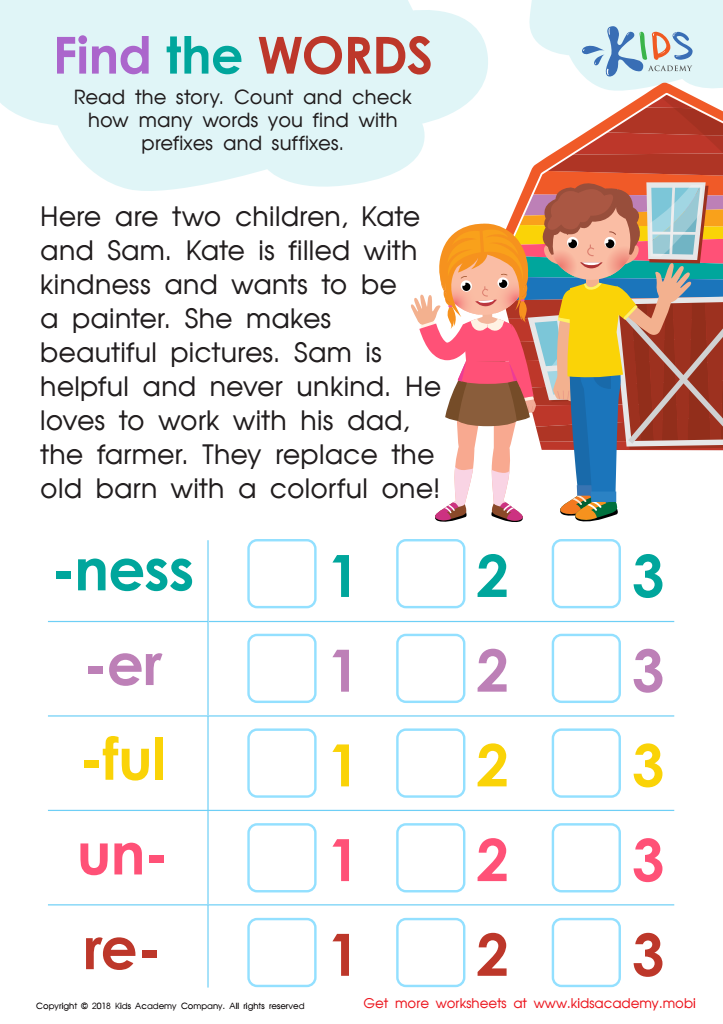

Prefix and Suffix Worksheet For Grade 3
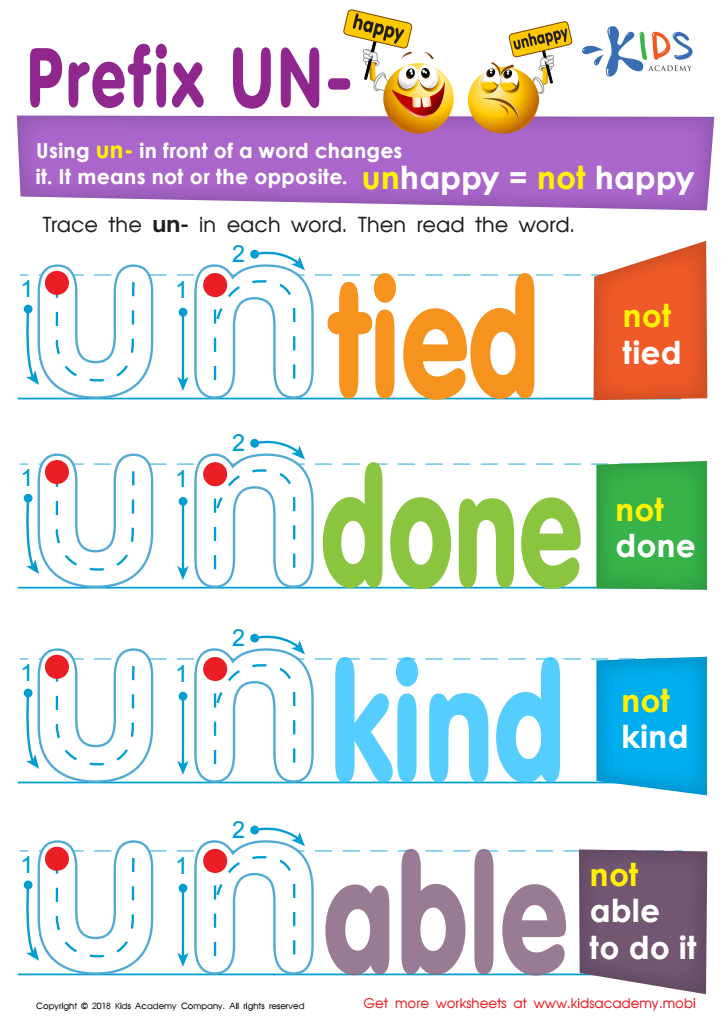

Prefix Un- Worksheet
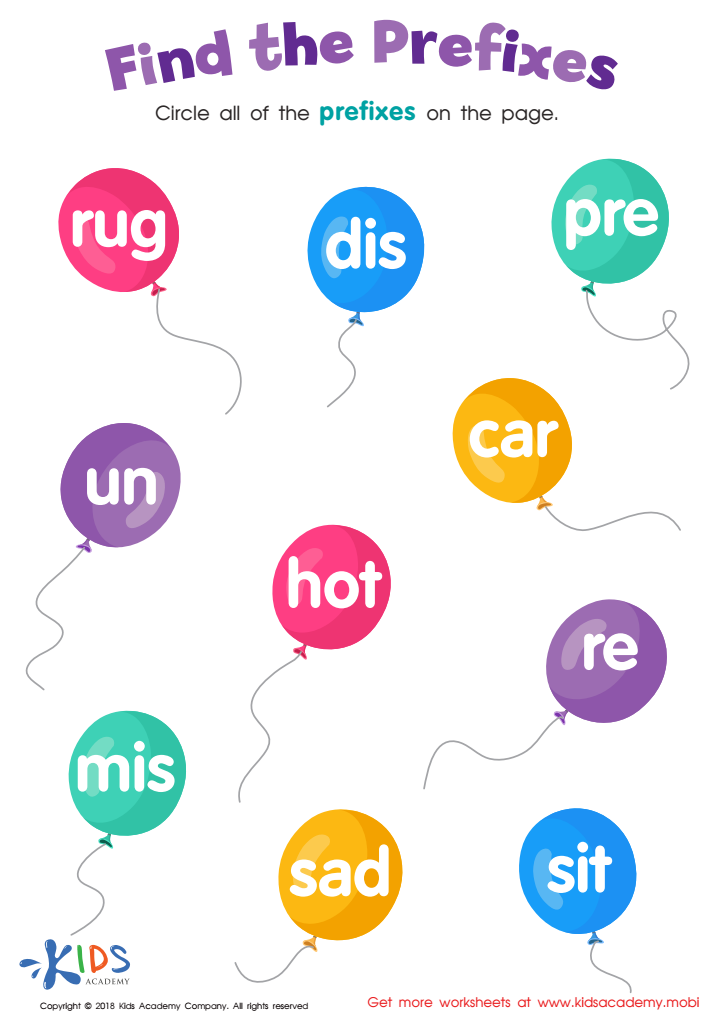

Reading: Find the Prefixes Worksheet
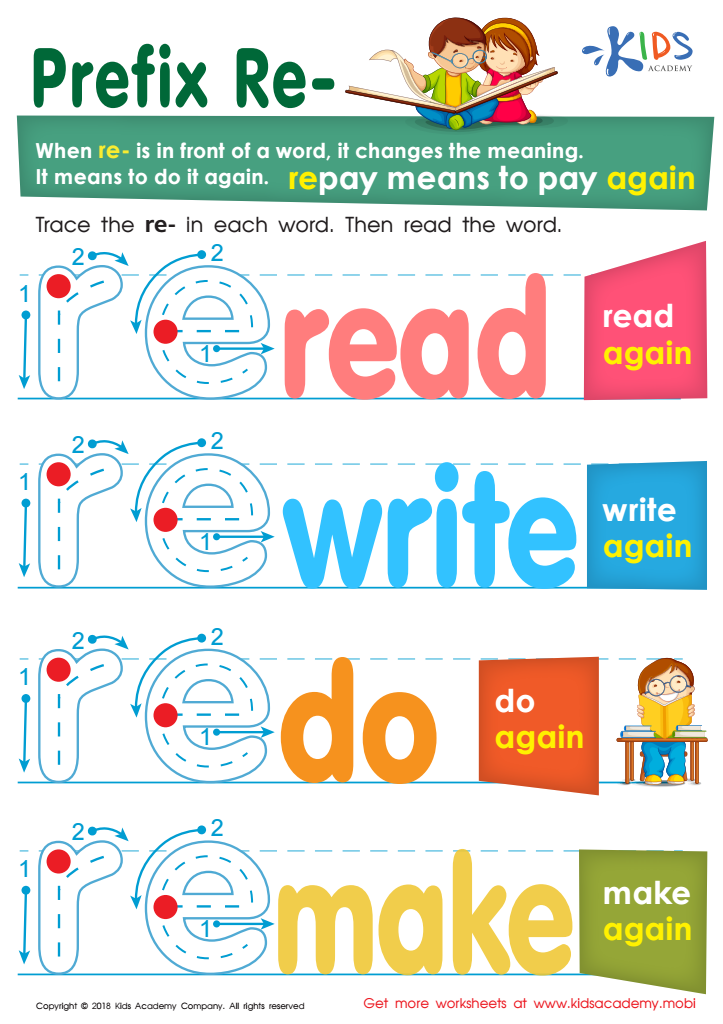

Prefix Re- Worksheet
Understanding prefixes is crucial for young learners aged 4-8 as it lays the foundation for language development and literacy skills. Prefixes are affixes added to the beginning of root words that modify their meanings, which helps children expand their vocabulary. By learning how prefixes work, children can decipher unfamiliar words, fostering reading comprehension. For example, knowing the prefix "un-" helps a child understand that "happy" means the opposite of "unhappy".
When parents and teachers emphasize prefixes, they enable children to enjoy a more enriching reading experience and feel more confident in their communication skills. Engaging in activities that explore prefixes, like fun games or crafting lists of words, sparks curiosity and engagement, making learning enjoyable.
Moreover, a strong foundation in word parts prepares students for more complex language concepts as they progress in their education. In an increasingly literate society, understanding prefixes not only enhances vocabulary but also supports critical thinking. Therefore, parents and teachers should actively teach prefixes to equip young learners with essential tools for successful reading, writing, and lifelong learning.
 Assign to My Students
Assign to My Students
















